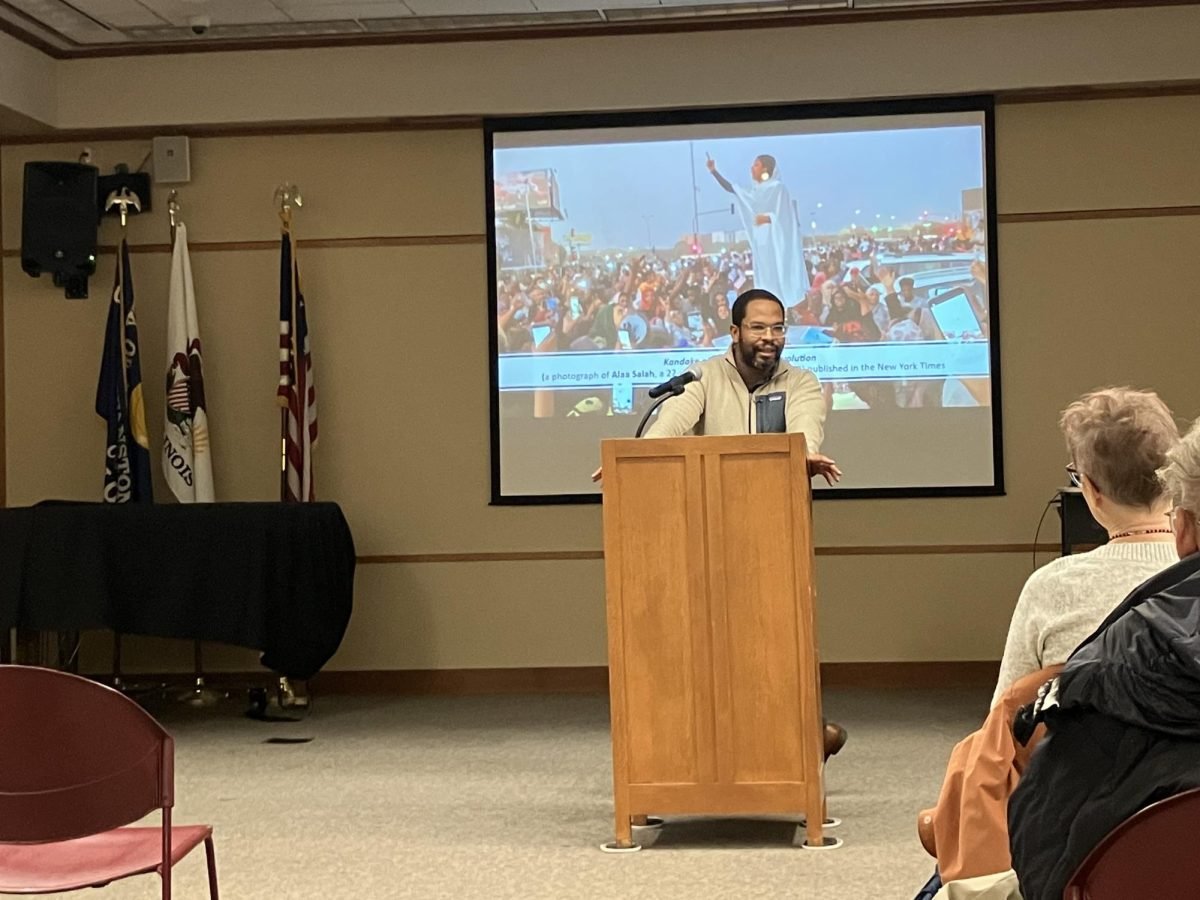Evanston Public Library and Northwestern’s Middle East and North African Studies Program hosted Yale history and global affairs Prof. Alden Young Monday night to discuss the ongoing war and humanitarian crisis in Sudan.
The talk, “Sudan’s Delayed Transition: How did we get here?”, is a part of the 10th season of the EPL and MENA program series that started in 2015 aiming to give attendees a resource to learn more about the politics, history and culture of the Middle East and North African region, said Lorena Neal, an EPL librarian.
“This conflict between two warring generals, the war of the generals, each backed by different governments in the region and around the world, has resulted in the displacement of 6.5 million people, bringing the total of Sudan’s displacement from conflict of hunger to 11 million,” said Anthropology Prof. Jessica Winegar, NU’s chair in Middle Eastern Studies, while introducing Young’s talk. “That is, by most accounts, or many accounts the largest displacement in the world currently.”
On April 15, 2023, Sudan’s military forces descended into its current fighting, after a 2021 military coup dismissed the democratic, civilian-led government peacefully established in April 2019. The Sudanese Armed Forces under Abdel Fattah al-Burhan and the paramilitary Rapid Support Forces under Mohamed Hamdan Dagalo led two powerful armed movements, resulting in today’s civil war.
Since its independence in 1956, Sudan has had at least 19 officially recorded attempted coups, many of which have been successful. Particularly, the start of the civil war in April 2023 has plunged Sudan into an intense humanitarian crisis, with about 26 million people facing food insecurity.
Young said the SAF and RSF originally came from the same military government but are now fighting over how to organize the balance of state power.
“It is also a fight about money at its core, who will control the largest share of the previous budget?” Young said. “You don’t want to really control the civilian state, you want to control the power of the military state. And so there are billions of dollars and rights to mineral access, right to land access, all of these things are sort of vested.”
Young also discussed the historical context of the ongoing war, including the long history of counterinsurgency and military rule, starting with joint British-Egyptian rule over Sudan from 1899 to 1956.
“I feel like this is an issue that has a lot to do with the colonial legacy,” Lake Forest College freshman Innocent Macherechedze said.
Macherechedze attended the talk for an African Studies class he’s taking. He said the talk led him to question development in a post-colonial era and how Sudan’s borders were divided.
Young emphasized that although both sides understand that their civilian populations are immensely suffering, they also fear that they cannot tolerate defeat, so they continue vying for power.
Neal said Young’s talk — and the entire speaker series — aims to get the community to pay attention to the Middle East and North African regions beyond when the region’s issues impact U.S. oil prices and military spending.
“(We’re) trying to encompass it as a full and complete, complex area of the world and have a better understanding of it,” Neal said.
Email: [email protected]
Related Stories:
— Evanston Public Library hosts monthly Language Cafe, brings together language enthusiasts
— Israeli and Palestinian peace activists describe growing up amidst conflict
— E-Town Sunrise, Fossil Free NU rally for Healthy Buildings Ordinance, fossil fuel-free campus






